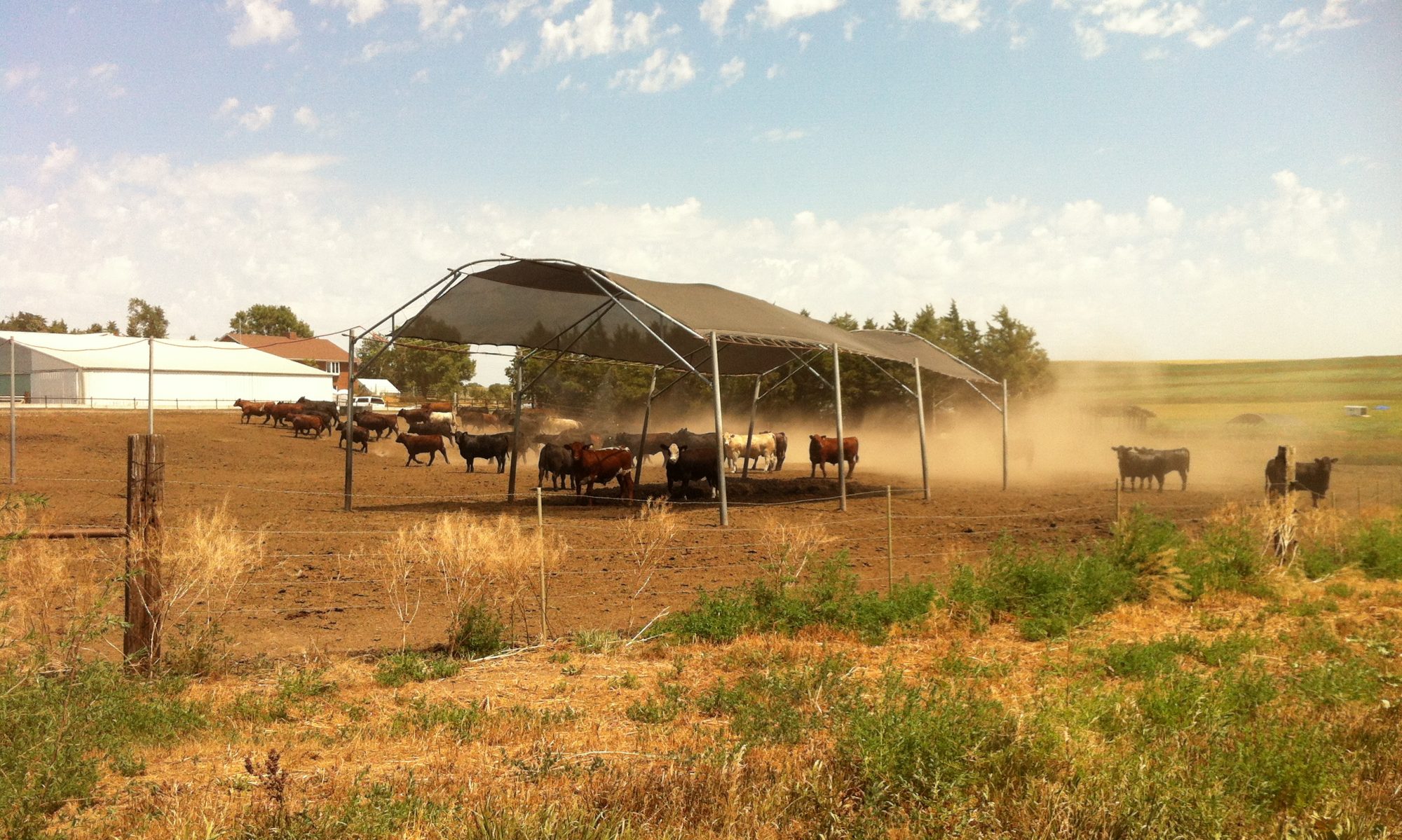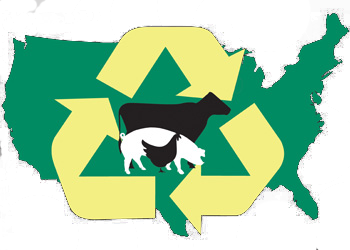![]() Waste to Worth home | More proceedings….
Waste to Worth home | More proceedings….
The American Veterinary Medical Association (AVMA) offers several resources to its members and the public regarding various disposal issues encountered by the veterinary community and animal owners. With its veterinary medical expertise, the veterinary profession can be a valuable resource for clients, the general public, regulators, and other stakeholders on carcass and other animal waste disposal issues, especially those involving potential health risks to other animals or the public. The purpose in developing these resources is to further increase awareness by the veterinary profession and its stakeholders of the value, potential hazards, and legal restrictions concerning disposal of animal waste and carcasses.
What Did We Do?
The AVMA has established policies related to the disposal of animal waste and carcass disposal. Three key policies include “Appropriate Animal Carcass Disposal,” “Animal Carcass Risk in Natural Disasters,” and “Animal Agriculture Waste Management.” All of the AVMA policies related to waste issues can be found at https://www.avma.org/PracticeManagement/Administration/Pages/AVMA-Policies-Relevant-to-Waste-Disposal.aspx.
- Appropriate Animal Carcass Disposal
The AVMA advocates safe and environmentally responsible disposal of animal carcasses, whether on an individual animal basis or during mass mortality events. As such, the AVMA supports increased research and education towards the development of appropriate methods and guidelines for animal carcass disposal.
- Animal Carcass Risk in Natural Disasters
Consistent with current scientific literature and the conclusions of the Pan American Health Organization (PAHO), the AVMA recognizes that animals that die from injuries, including massive animal deaths in cases of natural disasters, generally do not represent a health hazard for humans. The presence of dead bodies that result from a disaster, without the presence of another risk factor, is not the cause for the spread of infectious diseases. (1PAHO Manual, Ch 3, Conclusions; p. 81)
1 Management of Dead Bodies in Disaster Situations, Disaster Manuals and Guidelines Series, number 5. Pan American Health Organization, Area on Emergency Preparedness and Disaster Relief, and the World Health Organization, Department for Health Action in Crisis. Washington, DC, 2004.
- Animal Agriculture Waste Management
The AVMA supports the basic premises of current federal and state legislation and regulations enacted to prevent negative environmental impacts from wastes generated by terrestrial or aquatic animal productions. Veterinarians should be aware of the value, potential hazards, and legal restrictions concerning animal waste.
Therefore the AVMA supports the following:
- Education, outreach, and extension programs to assist producers in meeting or exceeding current federal and state requirements. This includes aid in establishing and implementing nutrient management plans as well as design and construction of effective waste management facilities to prevent contamination of the environment.
- Science based research on animal waste management systems and procedures to allow animal waste materials to be utilized as nutrient sources for sustainable agriculture systems.
- Scientific studies of the impact of pathogens and chemicals from animal/human waste sources on the environment.
Additionally, the AVMA has developed the microsite, www.avma.org/wastedisposal. Sections of the microsite addressing topics such as “Federal Regulations of Waste Disposal,” “State-based Waste Disposal Resources,” and “AVMA Policies Relevant to Waste Disposal,” are accessible by the general public. Specific “Clinical Resources” pages, such as “Animal Carcass Disposal,” “Animal Waste Disposal,” “Recordkeeping,” and more are accessible only by AVMA members. On a similar note and because of its expertise, the Association was consulted during the development of the Veterinary Compliance Assistance (VetCA) website (www.vetca.org) by the National Center for Manufacturing Sciences under the National Compliance Assistance Centers program. Funding for this latter project has been provided by the U.S. Environmental Protection Agency.
In addition to the pharmaceutical disposal information within the aforementioned resources, the AVMA has partnered with the National Sea Grant Office (NSGO), Office of Oceanic and Atmospheric Research, National Oceanic and Atmospheric Administration (NOAA), U.S. Department of Commerce to combine efforts and develop a joint outreach and educational campaign for veterinary clients regarding proper pharmaceutical disposal. Information and products associated with the collaborative effort are available at www.avma.org/unwantedmeds.
The “Green Veterinary Practices” microsite has also been developed by the AVMA. The web pages provide AVMA members and the public information on sustainable practices. Not only does the site discuss what the AVMA is doing, it also provides resources for integrating eco-friendly features into veterinary practices as well as opportunities for including eco-friendly practices in facility designs. The microsite is available at https://www.avma.org/green-veterinary-practices
In addition to policy and resource development, the AMVA is active in advocacy. Related to waste issues, the Association has weighed in on Federal Register items such as Docket Number [EPA-HQ-OW-2011-0188], the National Pollutant Discharge Elimination System (NPDES) Concentrated Animal Feeding Operation (CAFO) Reporting Rule and Docket Number [EPA-OW-2011-0466], Draft Recreational Water Quality Criteria and Request for Scientific Views. To see additional topics as well as the AVMA’s comments, please visit https://www.avma.org/advocacy/national-advocacy. In 2012, the AVMA joined the Agriculture and Food Research Initiative (AFRI) Coalition urging Congress to support the $325 million for the AFRI in the President’s Fiscal year 2013 budget proposal. To view all of the AVMA’s advocacy information, please click on “Advocacy” from the AVMA’s home page, www.avma.org.
What Have We Learned?
Integrative efforts of multiple disciplines and stakeholders are needed to better enhance the science of waste management as well as to help bridge the gaps between such science and sociopolitical opinions.
Future Plans
As stated in its policies, the AVMA will continue to advocate for safe and environmentally responsible disposal of animal carcasses as well as support:
- Education, outreach, and extension programs to assist producers in meeting or exceeding current federal and state requirements
- Science based research on animal waste management systems and procedures to allow animal waste materials to be utilized as nutrient sources for sustainable agriculture systems.
- Scientific studies of the impact of pathogens and chemicals from animal/human waste sources on the environment.
Authors
Kristi Henderson, DVM, Assistant Director, Scientific Activities Division, American Veterinary Medical Association khenderson@avma.org
Additional Information
The authors are solely responsible for the content of these proceedings. The technical information does not necessarily reflect the official position of the sponsoring agencies or institutions represented by planning committee members, and inclusion and distribution herein does not constitute an endorsement of views expressed by the same. Printed materials included herein are not refereed publications. Citations should appear as follows. EXAMPLE: Authors. 2013. Title of presentation. Waste to Worth: Spreading Science and Solutions. Denver, CO. April 1-5, 2013. URL of this page. Accessed on: today’s date.

